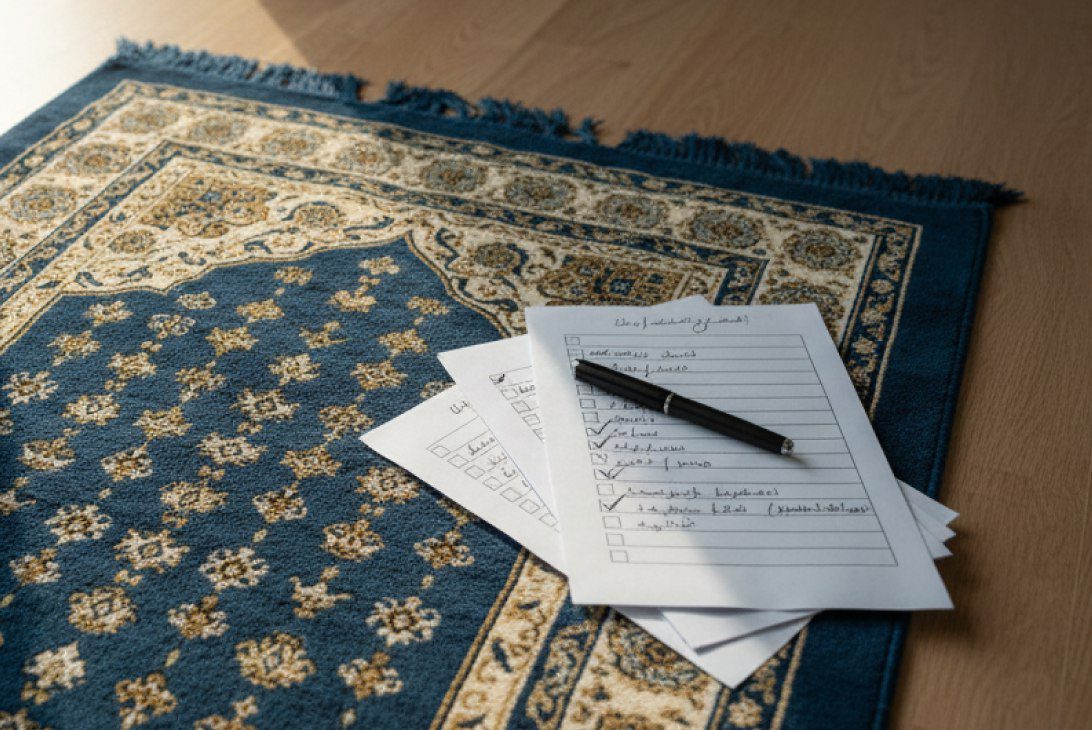Subtotal: £5.00
During the Battle of Uḥud, ʿAbdullāh b. Jaḥsh (raḍiy Allāhu ʿanhu) said to Saʿd b. Abī Waqqāṣ (raḍiy Allāhu ʿanhu), “Won’t you come so we can make duʿā’ together?” They went to a corner and sat. Saʿd supplicated, “My Lord! When I meet the enemy tomorrow, let me encounter a man of enormous strength and whose enmity is severe. I shall fight him for Your sake, and he shall fight me. Then grant me victory over him until I slay him and acquire his spoils.”
ʿAbdullāh (raḍiy Allāhu ʿanhu) said “Āmīn” to Saʿd’s duʿā’, and then he himself supplicated, “O Allah, grant that I encounter a man tomorrow of enormous strength and whose enmity is severe. I shall fight him for Your sake, and he shall fight me. He shall kill me, and then cut off my nose and ears. And when I meet You, You will say, “ʿAbdullāh! Why were your nose and ears cut off?” Then I will say, “For Your sake and for the sake of Your Prophet.” And then You will say, “You have spoken the truth.”
Allah ﷻ al-Mujīb, the Responder, answered both of their duʿās.
Saʿd (raḍiy Allāhu ʿanhu) later told his son, “The duʿā’ of ʿAbdullāh b. Jaḥsh was better than my duʿā’: I saw him at the end of the day, (he was martyred) and his nose and ears were hanging on a thread.”
Allah Is al-Mujib
When Prophet Ṣāliḥ (ʿalayhis-salām) called his people to Allah, he reminded them:
إِنَّ رَبِّيْ قَرِيْبٌ مُجِيْبٌ
“Indeed, my Lord is Near and Responsive (to prayers)” (11:61).
In this āyah, Allah’s Name al-Qarīb (The Near) is paired with al-Mujīb (The Responder). This reminds us that His closeness and His response go hand in hand. Even when we can’t articulate our feelings, Allah knows the prayers deeply confined in our hearts. He hears our unspoken whispers and grants us what we didn’t even know we needed.
Nothing is more beloved to Allah than duʿā’. He commands us to ask, and He promises to answer. When He gives, it is out of His kindness; when He withholds, it is out of mercy; and when He chooses something else, it is always better than what we desired. We ask for what we want, but Allah gives what is best.
When we recognise who Allah is, our hearts overflow with hope. There is no one more kind, generous, beautiful or loving than Him. No one gives as He gives, and no gift compares to what He bestows. He is al-Ḥayiyy (The Modest); so modest that He feels shy to leave His servant empty-handed when they raise their hands to Him in supplication.
Allah ﷻ says, “And your Lord said, ‘Call upon Me; I will respond to you,’” (40:60) and “Ask Allah of His bounty” (4:32). Sufyān b. ʿUyaynah beautifully explained: “Allah only commanded us to ask so that He could give.” This is why ʿUmar b. al-Khaṭṭāb (raḍiy Allāhu ʿanhu) said, “I do not worry about my duʿā’ being answered. Rather, I worry about making duʿā’ because I know that if I am inspired by Allah to make duʿā’, the answer will follow.”
The Best Responder
In Sūrah as-Ṣāffāt, Allah mentions the moment of munājāh (intimate conversation) between Himself and His beloved Prophet Nūḥ (ʿalayhis-salām). Reflect on how Allah describes Himself:
وَلَقَدْ نَادَىٰنَا نُوْحٌ فَلَنِعْمَ الْمُجِيْبُوْنَ
“And indeed, Nūḥ called upon Us, and how excellent are We in responding!” (37:75).
Allah is truly the best Responder. No one answers with greater wisdom and mercy; no one hears your whispers like He does.
To know that Allah is al-Mujīb is to find comfort in despair. When every worldly door closes and the soul feels heavy with hardship, the heart that turns sincerely to Him is never turned away. He hears, and He responds with wisdom, mercy, and perfect timing.
Al-Mujib: The One Who Hears and Responds to All
Picture the Day of ʿArafah: millions of people standing together, each pouring out their hearts in countless languages and voices. Yet Allah hears every single one. He is al-Samīʿ, the All-Hearing. But He does not merely hear. He also responds, for He is al-Mujīb, the One who answers all who call upon Him.
Imagine the vast crowds in al-Masjid al-Ḥarām during the nights of Ramaḍān: hands raised, eyes filled with tears, hearts trembling in devotion. So many voices lifted at once, yet not a single plea is missed. Allah responds to every one of them.
He hears all voices, in their different languages, and with their myriad requests and pleas. One voice does not distract Him from hearing another, nor do their innumerable pleas confuse Him. The persistent, repeated calls of His servants do not burden Him; in fact, He is pleased by such insistent devotion. He loves to be called upon and becomes displeased when His servants abandon supplication. He is the Most Generous, the Most Giving, granting to His servants even before they ask, and in ways that far exceed what they ever imagined or hoped for.
Do You Know Who You’re Calling Upon?
Allah calls Himself al-Mujīb so that we never hesitate to call upon Him. When we’re certain He hears and answers, our hearts find strength and encouragement to keep asking, no matter how big or small the request.
Think about the wealthy and powerful in this world: kings, billionaires, and leaders. Why don’t we send them personal requests? Because we know we’ll likely be ignored. But Allah is not like His creation. He invites us to call upon Him. He is al-Mujīb: the One who always listens, always responds.
His Name is a promise. A promise that fills the heart with certainty, hope, and trust. No prayer goes unheard. No call is ignored. Wahb b. Munabbih (raḥimahullāh) once said to a man who used to seek favours from kings: “You turn to one who shuts his door, hides his wealth and shows you his need; yet you turn away from the One who opens His door to you day and night, shows you His richness, and says: ‘Call upon Me, and I will respond to you.’”
The Greatest Secret to an Accepted Duʿa
The ultimate key to having your duʿā’ accepted lies in consistently performing righteous deeds and avoiding sins. Allah says: “And He answers those who believe and do righteous good deeds, and increases them from His bounty” (42:26).
Imām al-Ṭabarī explains that Allah responds to the supplications of those who believe, follow His commands, and avoid His prohibitions. Not only does He answer their du‘āʾ but He also blesses them with more than they asked for. Allah grants them gifts from His bounty that they didn’t even imagine.
Al-Ḥasan al-Baṣrī said, “Act and rejoice! For it is a true promise upon Allah ﷻ that He will respond to those who believe and do righteous deeds, and that He will increase them from His bounty.”
Wahb b. Munabbih said, “The example of someone who makes duʿā’ without acting is like someone who shoots an arrow without a bowstring.” He also said, “Righteous deeds elevate the duʿā’. Then he recited the verse, ‘To Him ascends good words, and righteous deeds raise them up’” (35:10).
This is echoed in the words of Prophet Ṣāliḥ (ʿalayhis-salām) to his people: “So seek His forgiveness and repent to Him. Indeed, my Lord is Near and ready to answer” (11:61). Here, Allah’s nearness and responsiveness are mentioned in direct connection to sincere repentance and seeking forgiveness. It is as if to say, He is Near and Responsive specifically to those who turn back to Him with sincere hearts: those who seek His pardon and return to Him in repentance.
A Special Response for His Close Friends
Allah responds to all who call upon Him, but He reserves a special closeness for His beloved friends (awliyāʾ). The Messenger of Allah ﷺ said, “Allah said: ‘Whoever shows enmity to My close friend (walī), I have declared war against him. And no servant draws near to Me with anything more beloved to Me than that which I have made obligatory upon him. My servant continues to draw near to me with voluntary worship until I love Him, and when I love him, I become his hearing that he hears with, his sight that he sees with, his hand by which he grasps, and his feet by which he walks. If he asks Me, I will surely grant him; and if he seeks refuge in Me, I will surely protect him…’” (Bukhārī).
Ibn Rajab (raḥimahullāh) explains that this beloved servant has a special status with Allah. This status guarantees that if he asks Allah for something, Allah grants it to him; and if he seeks refuge in Allah from something, He protects him from it; and if he calls upon Him, Allah answers his call. Such a person becomes one whose duʿā’ is accepted due to his nearness and honour with Allah, the Exalted.
The Messenger of Allah ﷺ said: “Indeed, among the servants of Allah are those who, if they were to swear by Allah, He would fulfill it” (Bukhārī) and “How many a weak and humble person, dressed in simple clothes, if he were to swear by Allah, Allah would surely fulfil it. Among them is al-Barā’ b. Mālik (raḍiy Allāhu ʿanhu)” (Ḥākim).
Such is the elevated status of sincere and humble believers with Allah, even if they seem insignificant in the eyes of people.

 My Dhikr Companion - Hardback
My Dhikr Companion - Hardback 




